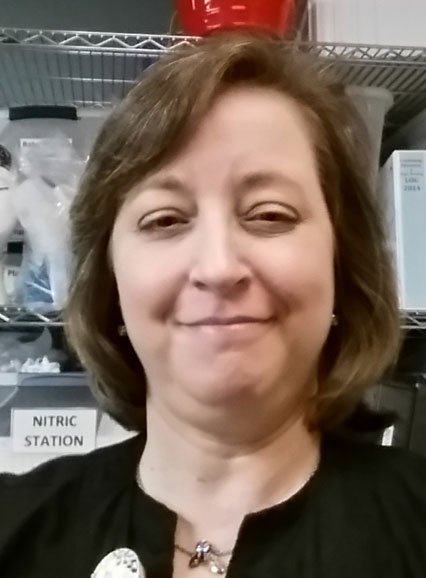 Christina Baughman
Christina BaughmanMany RT departments employ therapists who do nothing but look after the educational needs of other therapists. If you’re working in direct patient care, you might wonder what a clinical education coordinator position entails, how it adds value to the care your patients receive, and whether or not it might be right for you.
In the following interview, Christina Baughman, BHS, RRT-NPS, AE-C, RT education and CQI coordinator on two hospital campuses operated by CJW Medical Center in Richmond, VA, gives us an inside look at the position —
What does your job as education and CQI coordinator entail and how do you like serving in this role?
My job entails data collection, policy and procedure coordination, assistance with clinical ladder projects, and education of staff to ensure we are serving our patients well and providing the best possible therapies. I provide education to multidisciplinary staff members on new equipment, therapies, and any data that is outside our benchmarks as determined by analysis of data collected and the AARC Benchmarking System. Although it has been a very busy year, I love the challenges and opportunities my job provides.
How did you get the job and what, if any, special training did it require?
I completed my bachelor’s degree in 2009 and had been adjunct faculty with our local community college for approximately nine years. Throughout my career, I have participated in educational and volunteer activities that would promote the respiratory therapy profession. There are always educational opportunities for respiratory therapists to teach people about what we do on a daily basis. So few people truly know what a respiratory therapist does, and I think it is our responsibility to change that.
One issue that I am hearing more and more about is the preference to hire only registered therapists. So, I would suggest that anyone who isn’t registered take this into consideration. Use any opportunity you have to further your education.
What would you say are the biggest challenges involved in taking on a role of this type in a hospital?
Since I was not employed by these hospitals before taking this role, the biggest challenge for me has been learning the equipment, policies, and procedures myself! I want to be able to provide as much support for the staff as possible and that has required quite a bit of learning on my part.
In addition, taking on this role for two hospitals has required some reorganization of policies, procedures, education, and equipment to ensure therapists are able to work between the hospitals without interruption of their workflow. My role is to give the therapists what they need to provide the best patient care.
What are the biggest rewards?
I have been given a wonderful opportunity to work in a positive atmosphere where professional growth is nurtured. We work as a team. Each person supports the other and we recognize that the only way we can do the best thing for our patients is to keep that team approach working well. It is a positive atmosphere where ideas, work ethic, and just doing the right thing are recognized. Our administrative team has developed some very special core values and we all do our best to make sure they happen every day with every patient.
My job is to give the team the tools they need to keep moving forward. Over the past year, we have seen an increase in autonomy with all critical care procedures through the use of respiratory therapy driven protocols. The most rewarding part of my job is when we are given added responsibility because physicians and administration have become aware of all we have to offer.
What advice do you have for other RTs who might be thinking about seeking out a position as a CQI and/or clinical education coordinator?
I would encourage anyone wanting to pursue a career as an educator to further their education, volunteer for respiratory related events/committees, and act as a preceptor for local respiratory therapy programs. In addition, become involved with your state organization and the AARC. Show prospective employers that you are committed to our profession. There is no better way to show your professionalism than becoming involved and supporting these organizations.





